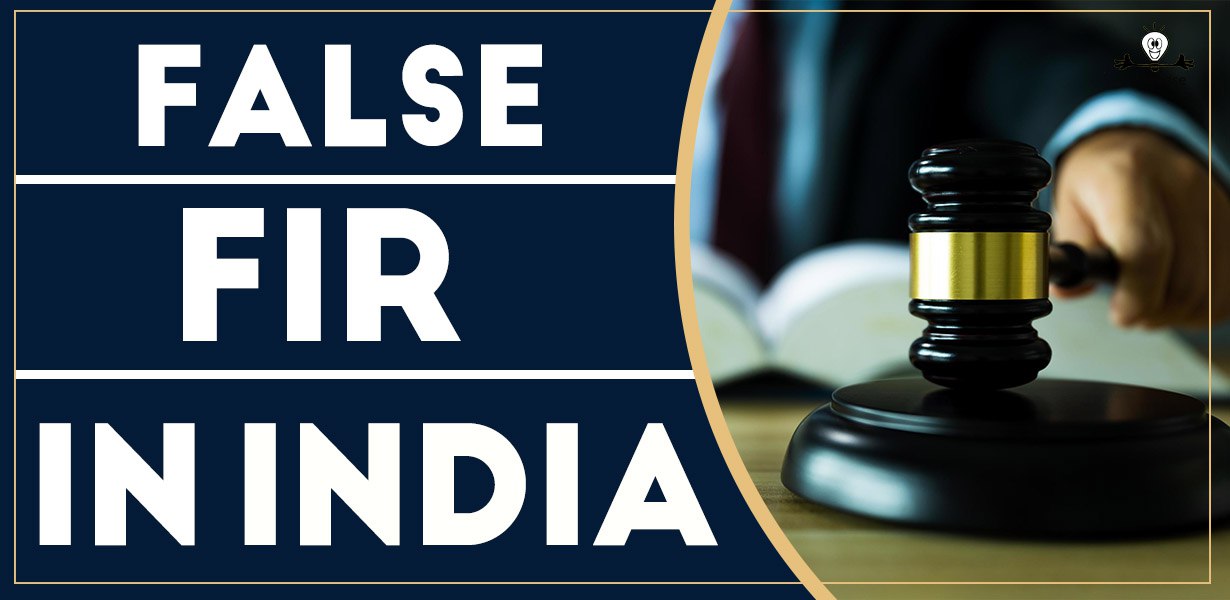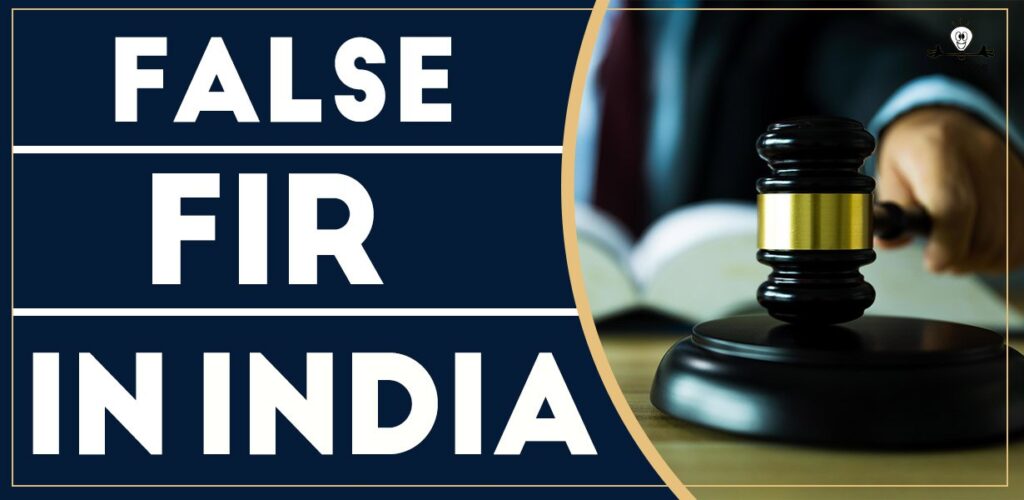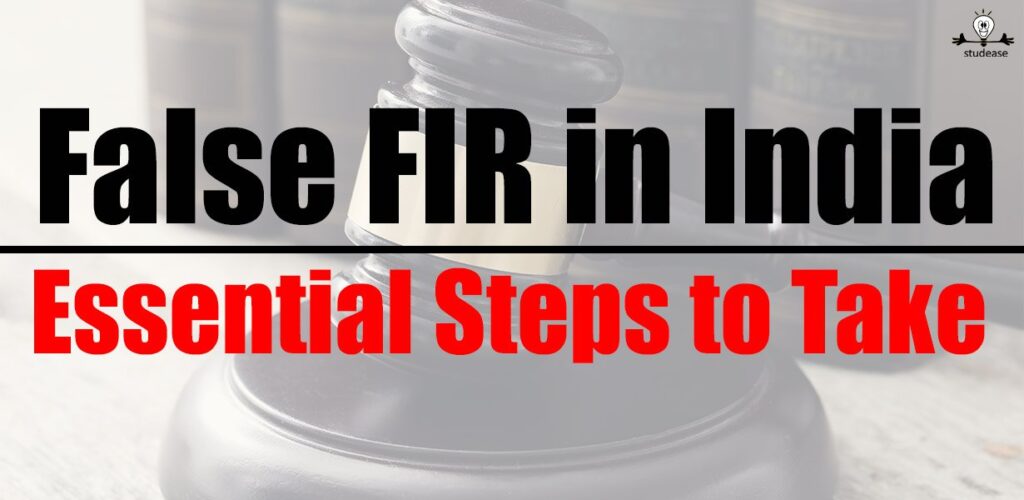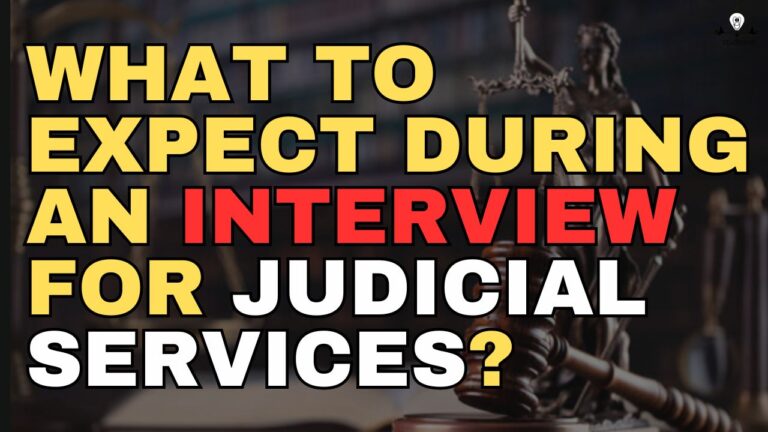False FIR in India: Essential Steps to Take

In India, filing a false FIR (First Information Report) is a serious offense. It can lead to severe legal consequences. Despite the legal provisions in place to prevent the filing of false FIRs, such incidents are still prevalent in the country. It is essential to know the appropriate legal steps to take in case of a false FIR to safeguard one’s legal rights and how to protect your skin.
One of the first steps to take in case of a false FIR is to apply for anticipatory bail under Section 438 of the CrPC (Code of Criminal Procedure) at the nearest Sessions Court.

The court considers various factors such as the gravity of the offense, the possibility of the accused absconding, and the likelihood of the accused tampering with evidence before granting the bail. The court may also impose certain conditions on the accused while granting the bail.
Another legal remedy available to the accused is to file a writ petition before the High Court under Article 226 of the Indian Constitution. The High Court has the power to quash the false FIR if it is found to be unjust and unfair to the accused.
Additionally, the accused can file an application with the court under Section 156 (3) of the CrPC or make a private complaint under Section 200 of the CrPC for false charges of offense with the intent to injure him/her. In this post, I will discuss regarding how to tackle the situation in case False FIR is registered in India.
Page Contents
What is an FIR?
An FIR (First Information Report) is a written document that is filed by the police when they receive information about a cognizable offence. A cognizable offence is an offence where the police can arrest the accused without a warrant. The FIR is the first step in the criminal proceeding and is an important document that sets the process in motion.
Definition
An FIR is a written document that contains information about a cognizable offence. It is filed by the police when they receive information about the offence. The FIR is an important document that sets the process in motion and is used to start the investigation.
Also Check: Guide to Lodge an FIR in India?
Kinds of FIR
Zero Number FIR
Telephonic FIR
Multiple FIR
Cross FIR
The police are required to register an FIR for a cognizable offence.
In case of a false case, a person can approach the High Court for getting the false FIR quashed by filing an application under Sec 482 of Code of Criminal Procedure on the following grounds- The Acts or omission on the basis of which the FIR has been lodged does not constitute an offence. The Offence for which the FIR has been registered against the accused has never happened.
Legal Steps to be Taken in Case of False FIR
When an individual is falsely accused of a crime and an FIR is lodged against them, it can be a harrowing experience. However, there are legal steps that can be taken to deal with a false FIR in India.

Filing a Complaint
The affected person can file a complaint against the complainant under Section 211 of the Indian Penal Code for malicious prosecution. This can be done after the affected person has successfully taken legal steps to have the false FIR quashed.
“Section 211 IPC: Whoever, with intent to cause injury to any person, institutes or causes to be instituted any criminal proceeding against that person, or falsely charges any person with having committed an offence, knowing that there is no just or lawful ground for such proceeding or charge against that person, shall be punished with imprisonment of either description for a term which may extend to two years, or with fine, or with both.”
Anticipatory Bail
Before the arrest is made, the victim against whom the false FIR has been lodged can apply for bail before the Sessions Court or the High Court under Section 438 of the Code of Criminal Procedure. This section of the CrPC pertains to ‘Anticipatory Bail’ and the object herein is to avoid unnecessary arrest and harassment to an innocent person.
Section 438 CrPC reads as follows –
“Direction for grant of bail to person apprehending arrest.
(1) When any person has reason to believe that he may be arrested on an accusation of having committed a non- bailable offence, he may apply to the High Court or the Court of Session for a direction under this section; and that Court may, if it thinks fit, direct that in the event of such arrest, he shall be released on bail.
(2) When the High Court or the Court of Session makes a direction under sub- section (1), it may include such conditions in such directions in the light of the facts of the particular case, as it may think fit.”
Preparing for Judiciary Exams? Also Check
Himachal Judicial Services Exam Guide 2023: Tips and Strategies for Success
Punjab Judiciary Exam 2023: Everything You Need to Know
Haryana Judiciary Exam 2023: Your Complete Guide
Delhi Judiciary Exam 2023: Everything You Need to Know
Preparing for Civil Judge Interview: Expert Tips and Strategies
Quashing FIR u/s 482 CrPC
An application under Section 482 of the CrPC can be filed to deal with a false FIR. This can be done before filing the charge sheet, during the pendency of the trial, or after the commencement of the trial. The High Court has the inherent power to quash the FIR if it finds that the FIR is frivolous, vexatious, or has been lodged with an ulterior motive.
Section 482 CrPC deals with Inherent Powers of High Court:
“Nothing in this Code shall be deemed to limit or affect the inherent powers of the High Court to make such orders as may be necessary to give effect to any order this Code, or to prevent abuse of the process of any Court or otherwise to secure the ends of justice.”
Grounds on which Quashing may be possible?
The grounds on which the FIR can be quashed include insufficiency of evidence, abuse of process of courts, miscarriage of justice, baseless allegations, and malicious intent. The court can also quash the FIR if it finds that the FIR is against the principle of natural justice and could cause wrongful conviction to the accused.
Writ Petition
A writ petition can be filed under Article 226 of the Constitution of India if the affected person feels that their fundamental rights have been violated.
Compensation
If the affected person has suffered damages due to the false FIR, they can file a civil suit for defamation or claim compensation for the harassment caused to them. The court can also order compensation to be paid to the affected person if it finds that the false FIR was filed with malicious intent.
In conclusion, false FIRs can have serious consequences for the victim, including arrest, imprisonment, and fines. However, with the legal steps outlined above, the affected person can protect their reputation and seek justice.
Rights of the Victim
When a false FIR is filed against an individual, it can have severe consequences on their personal and professional life. However, the victim has certain legal rights that they can exercise to protect themselves from the false charges. Here is the list of the rights of the victim:
- Right to file a complaint: Under Indian Penal Code, the victim can file a complaint with the police officer who lodged the false FIR or with his senior police officer.
- Right to seek bail: The victim can apply for bail before the Sessions Court or the High Court under Section 438 of the Code of Criminal Procedure, 1973, before the arrest of the victim has been made.
- Right to compensation: The victim can seek justice and compensation for the defamation caused due to the false accusations.
- Right to file a defamation case: The victim can file a defamation case against the person who filed the false FIR. The victim can also file a criminal defamation suit under Section 499 r/w Section 500 of the Indian Penal Code.
- Right to initiate prosecution: If the victim takes legal action and is successful, they can initiate prosecution against the complainant for embroiling them in a false case. This can be achieved through the following means:
- File a Complaint under Section 211 of the Indian Penal Code, 1860 for malicious prosecution
- File a Complaint under Section 182 of the Indian Penal Code, 1860 for giving false information to a public servant
It is important for the victim to exercise their legal rights to protect themselves from the false charges.
Also Check:
Conclusion
In conclusion, false FIRs can be a serious issue in India, and it is important for individuals to take the appropriate legal steps to protect themselves from wrongful conviction and penalties. The legal remedies available include filing an application under Section 482 of the CrPC to quash the FIR before or during the trial, seeking anticipatory bail under Section 438 of the CrPC, and filing a complaint against the complainant who made false claims.
It is important to note that false FIRs can have serious consequences for both the accused and the complainant. In addition to the legal penalties, false complainants may face social and reputational consequences, while the accused may suffer from loss of employment, damage to their reputation, and emotional distress.
Therefore, it is important for individuals to be aware of their legal rights and take appropriate action if they are falsely accused. Seeking the guidance of a legal professional can also be helpful in navigating the legal process and ensuring that their rights are protected.
Overall, false FIRs can be a complex and challenging issue to navigate, but by taking the appropriate legal steps and seeking the guidance of a legal professional, individuals can protect themselves from wrongful conviction and penalties.
For Expert Legal Opinion, Contact Adv Gagandeep Singh at 7837-220-750.
What Next?
We at studease encourage students to prepare well and stay informed. For more Content, Join our Telegram group to stay updated.
Join: studease Telegram Channel
Follow us: instagram
Subscribe: studease Youtube Channel
Download studease App:
👉 Android: https://edustan.page.link/Wbe5
👉 iOS users: Download Myinstitute app, enter org code – studease






